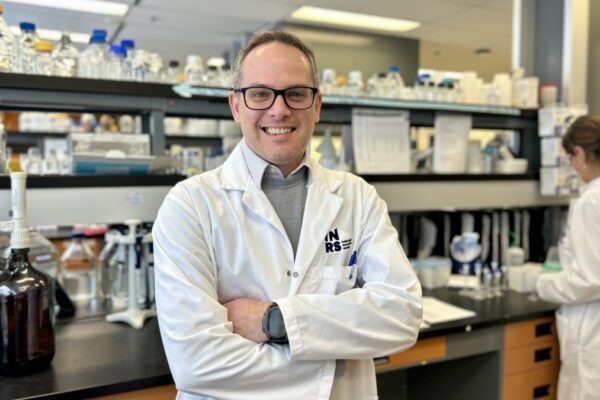- Academic Life
-
YOU ARE
- Community member
- Future Student
- Student
- Professor
- Alumni
- Media
- Guidance counsellors
- INRS retiree
- Contact Us
- Newsroom
- Careers
- FR
-
Studies
We teach the next generation of researchers to develop scientific, social, and technological innovations.
-
Research
We find solutions through interdisciplinary research and industry or public and community partnerships.
-
INRS
We play an active role in Québec's economic, social, and cultural development.
It may seem like an impossible dream to join a university research laboratory for a “real” scientific project at just 15, but that dream has come true for hundreds of young people since 2002 thanks to the Apprentis chercheurs program.
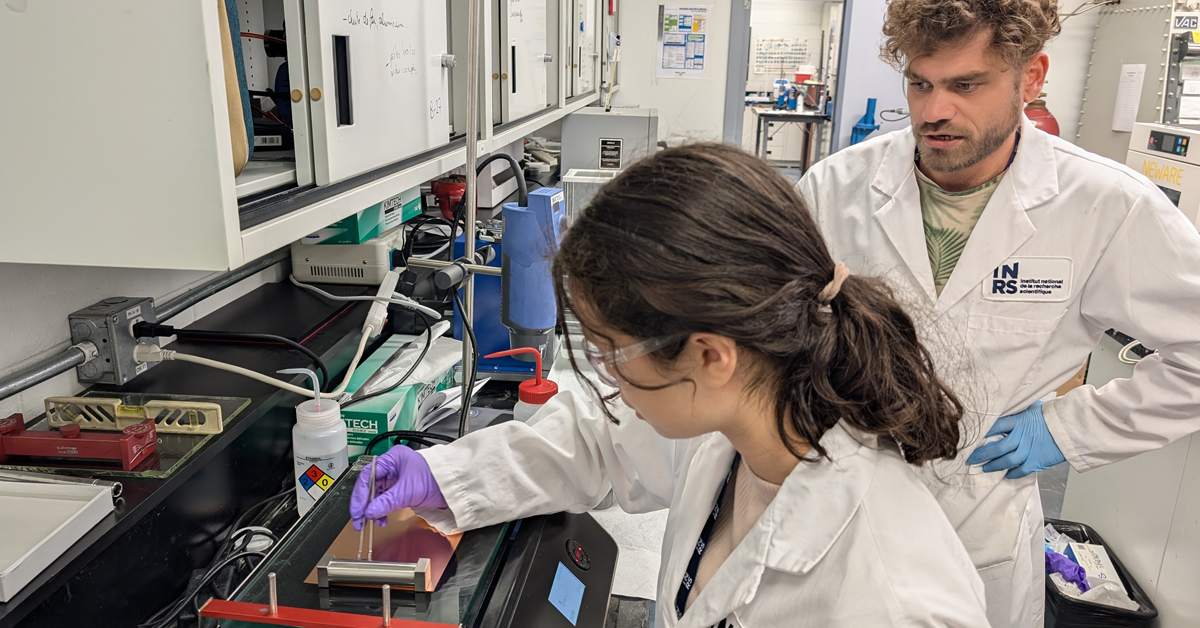
Apprentice researcher Arantxa, supervised by her mentor Alexandre.
While the program is open to all young people in Quebec, the Apprentis Chercheurs Program has particularly benefited those in the Montreal area. The young people who took part in the program discovered how research can address various societal challenges. They got to evaluate the efficacy of new molecules against plant viruses, study immune reactions after infection, use electron microscopy to explore new materials, and learn how to harness light to degrade environmental pollutants.
New research centre, new disciplines
Soon, young people in the Capitale-Nationale region will get the chance to benefit from this immersion in research closer to home. Starting next summer, the student community at the Eau Terre Environnement Research Centre in downtown Quebec City will be introducing young people to a wide range of environmental disciplines, including ecotoxicology, geology, environmental decontamination, and climate change.
A win-win
The exclusive mentoring is beneficial for participants and their mentors alike. While the former get to explore the world of science through research, the latter get a unique educational experience and the chance to build their skills in scientific communication and popularization.
“Working with an inquisitive young mind with a passion for science was a real honour. It was inspiring to see her enthusiasm and desire to learn, and it reminded me why I chose this path myself.”
Amira, student at the Énergie Matériaux Télécommunications Research Centre
The INRS Apprentis chercheurs program opens doors for everyone who takes part, giving them opportunities for mutual learning and scientific exploration. In the future, even more young people will be able to learn about research and find answers to their questions about research and careers in science.
“I’ll never forget this incredible experience, which was both fun and very rewarding. It gave me a much better idea of what careers are possible with a science degree, and the different paths we can take to get there.”
Tamara, apprentice researcher in energy and materials science.
A brief history of the Apprentis chercheurs program
The Apprentis chercheurs program started in 2002 thanks to an initiative by Professor Suzanne Lemieux and the management of the Armand-Frappier Museum. The first 18 editions promoted health sciences at the Armand-Frappier Santé Biotechnologie Research Centre, before being extended to the Énergie Matériaux Télécommunications Research Centre in 2021 and the Eau Terre Environnement Research Centre in 2025 to introduce young people to an even broader range of disciplines.
What does the program aim to do? Demystify research, higher education, and scientific careers for young people and help them think about their futures.
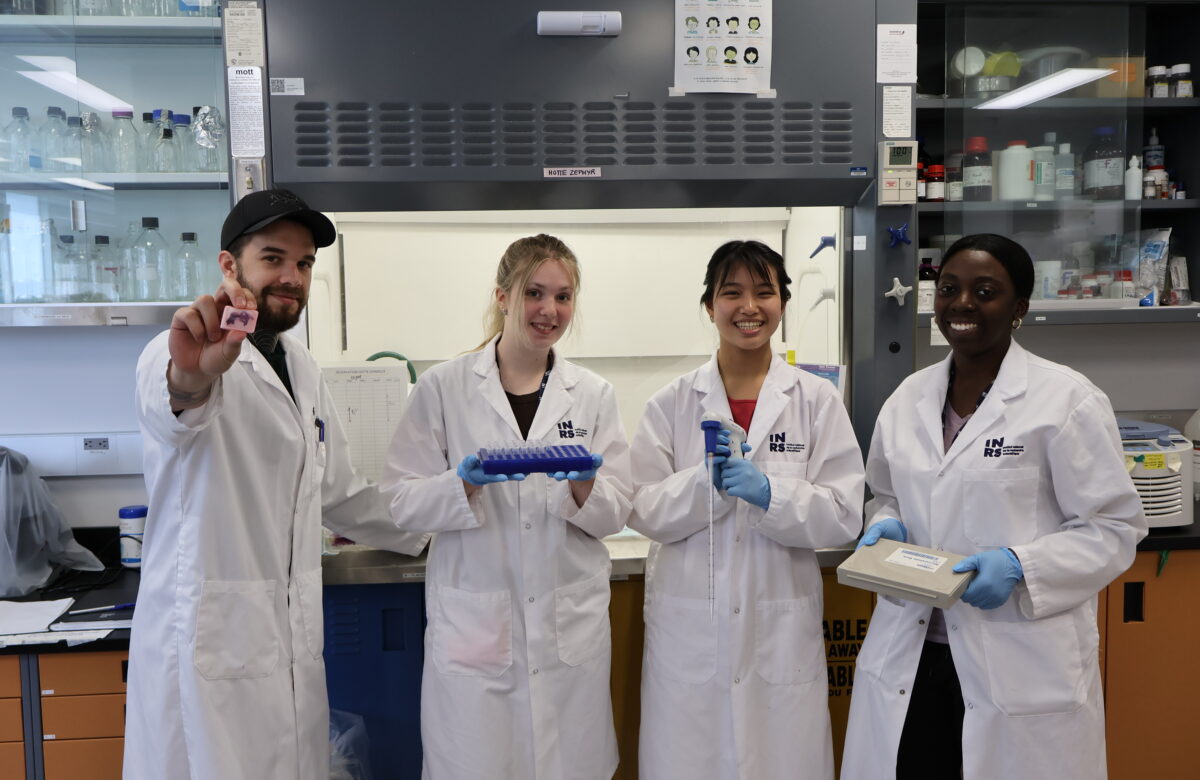
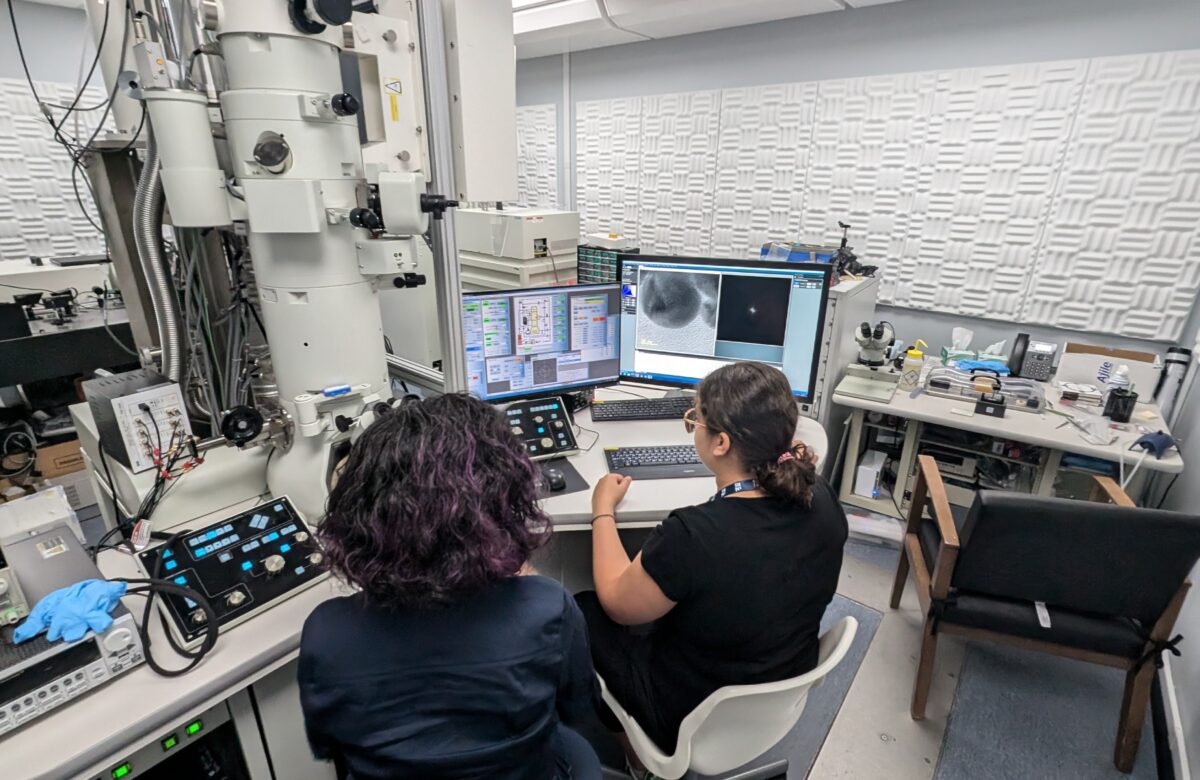
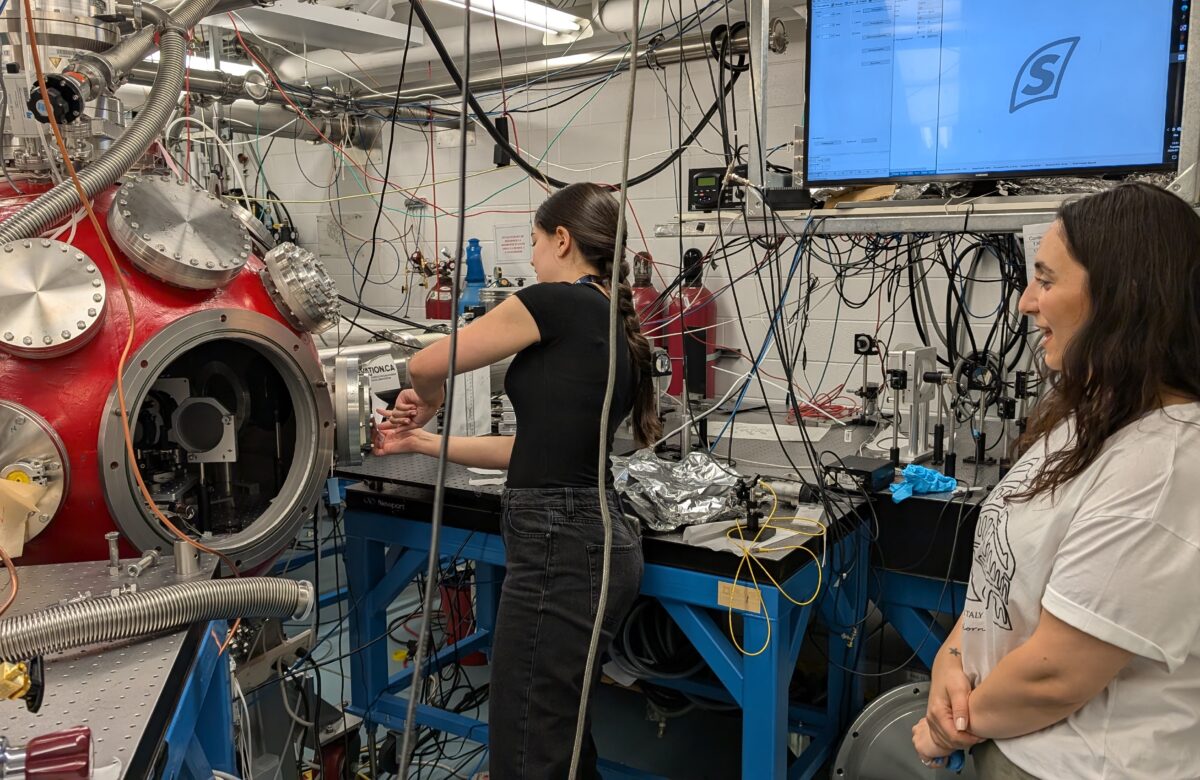

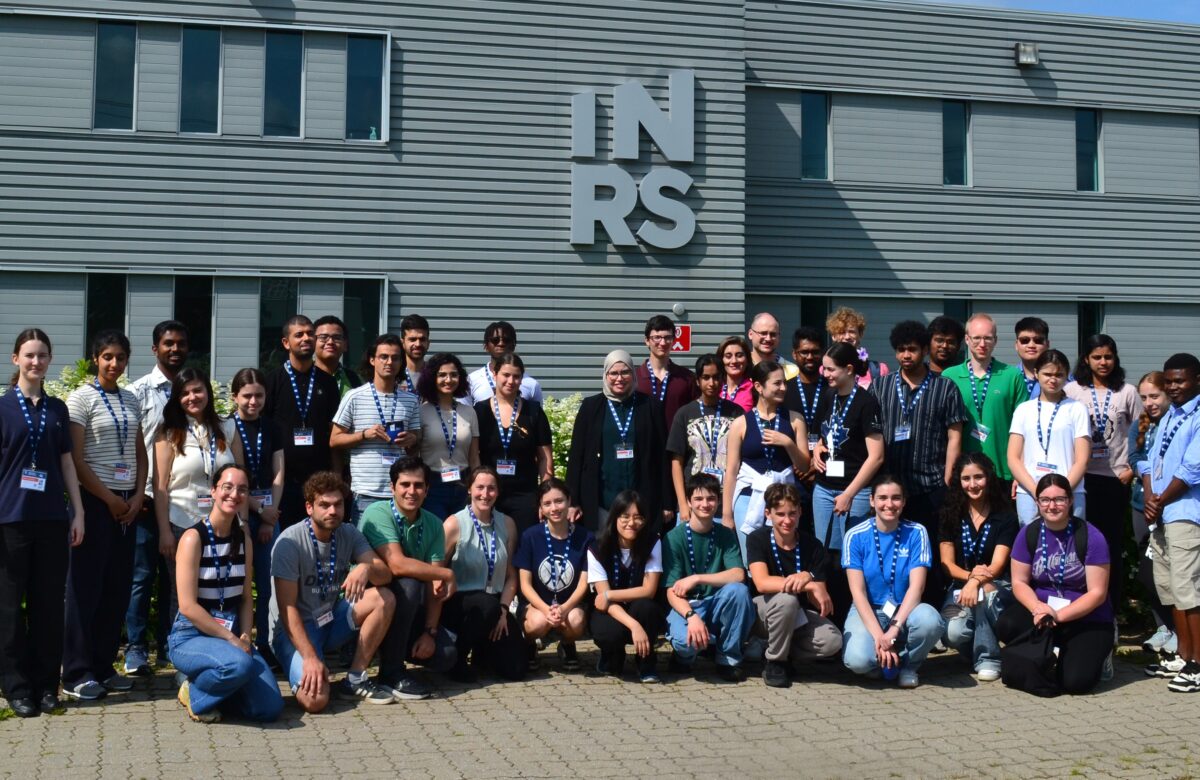
Groupe d’apprenties chercheuses et chercheurs en compagnie de l’équipe d’encadrement de l’INRS à l’été 2024, lors de la 4e édition du programme au Centre Énergie Matériaux Télécommunications de Varennes.
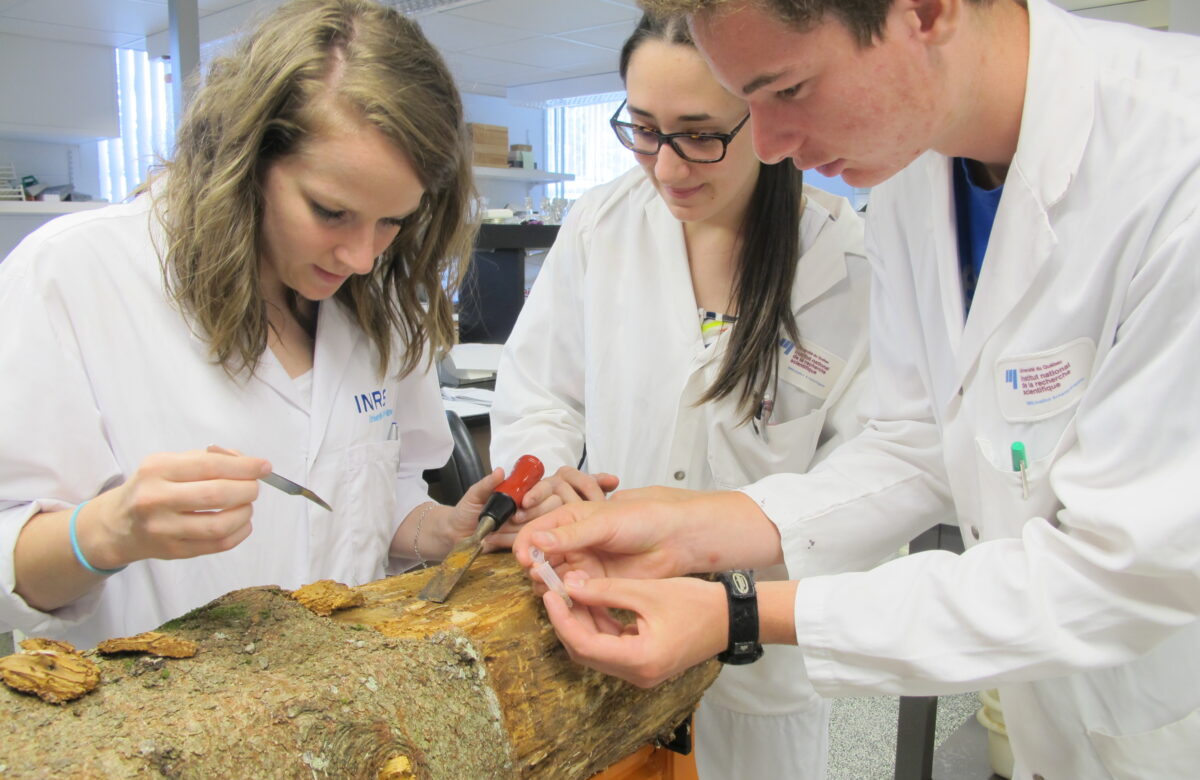
The program’s most distinctive advantage is that it gives high school students special access to members of the INRS student community, offering them the chance to learn in the fields that interest them. In 2018, the program received the Relève Technoscience award from ADRIQ for its achievements.
Many former program participants have returned to our campuses years after their sessions to pursue undergraduate summer internships or even graduate studies.
Financial partners
The program is offered free of charge to high school students, thanks to a number of financial partners. Major partners in the 2025 edition include the Natural Sciences and Engineering Research Council of Canada (NSERC), the Trottier Family Foundation, the Fonds de recherche du Québec (FRQ), and the Fondation Armand-Frappier.
You may also like
Share



